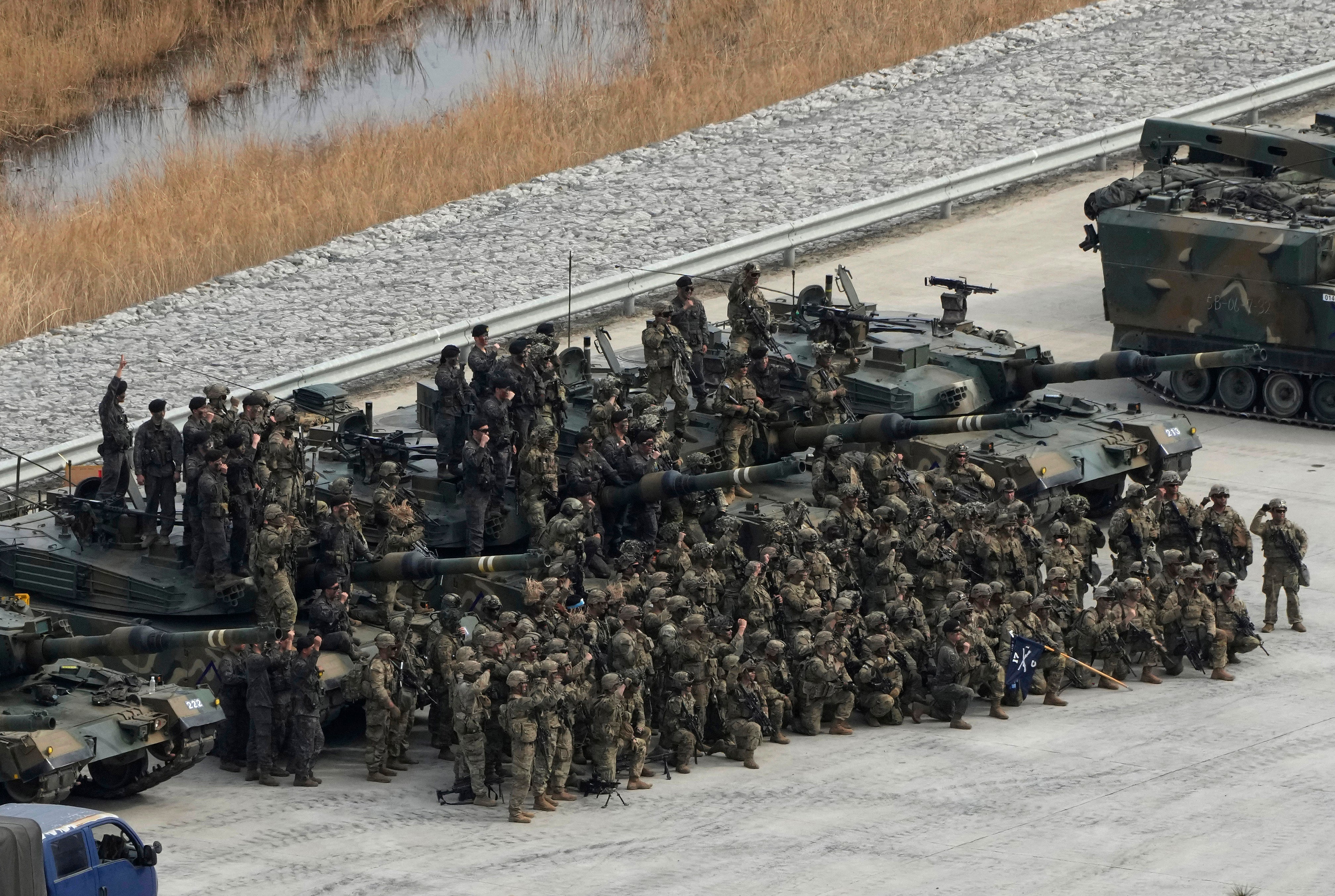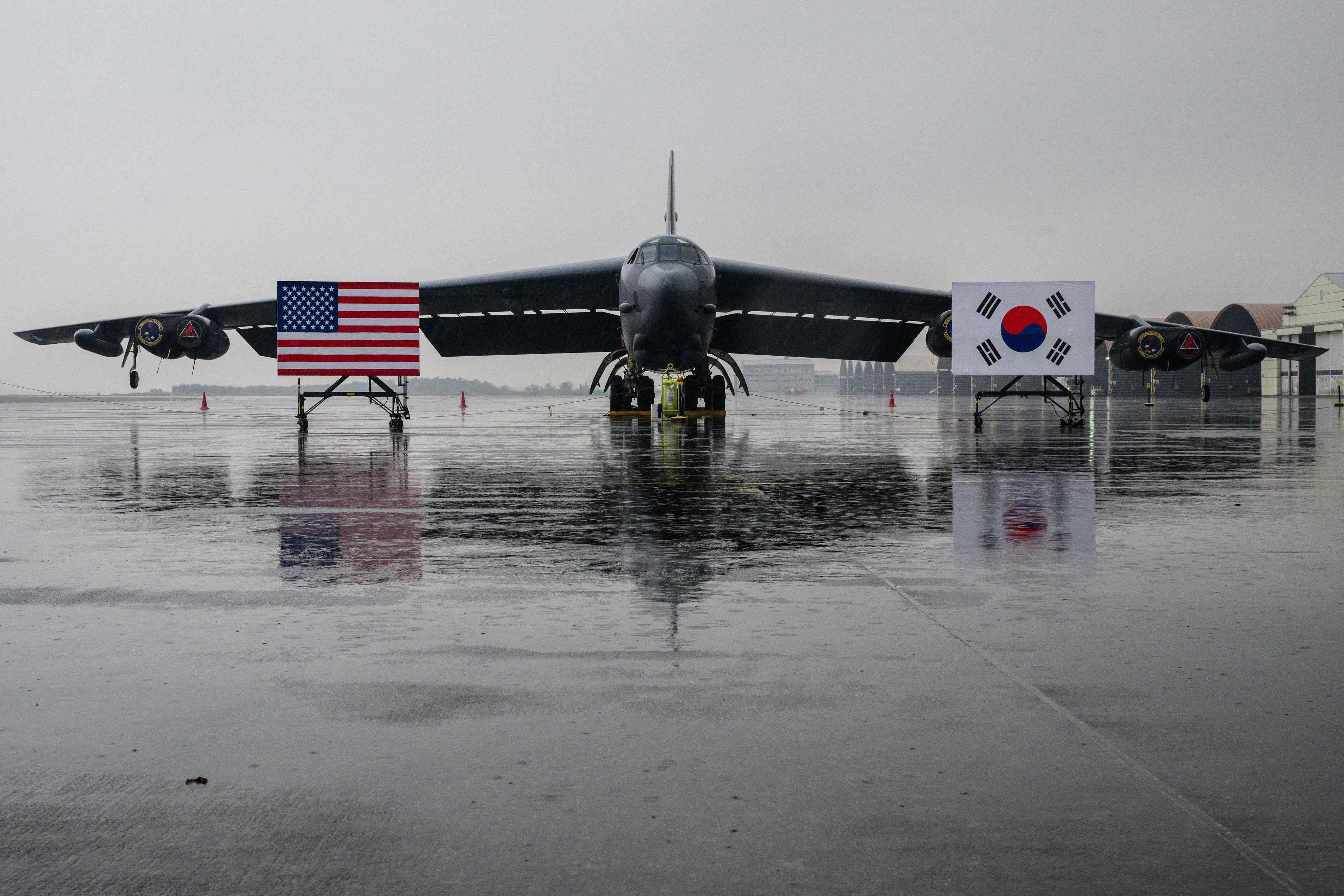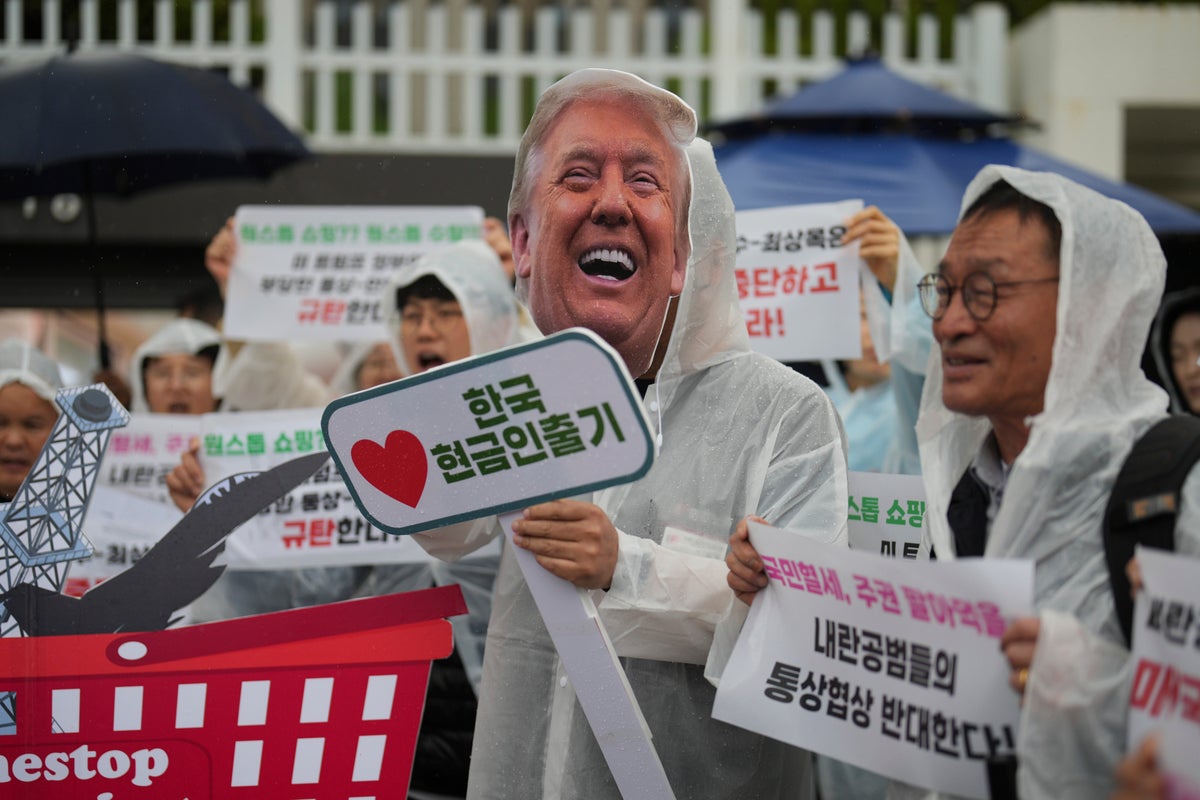Donald Trump said South Korea should pay for its own defence as he ramped up pressure on the Asian ally ahead of the imposition of a 25 per cent tariff on imports from the country.
The president said it was “very unfair” that the US was paying for the defence of a successful country, having previously threatened to pull American forces stationed on foreign soil, including in South Korea, if they did not pay more for their upkeep.
Tolong support kita ya,
Cukup klik ini aja: https://indonesiacrowd.com/support-bonus/
“It’s very unfair. We supply the militaries to many very successful countries,” Mr Trump said during a cabinet meeting at the White House on Tuesday. “South Korea is making a lot of money, and they are very good, they are very good. But, you know, they should be paying for their own military.”
The cost sharing for keeping some 28,500 American troops in South Korea has been a point of friction between the two allies since Mr Trump’s first presidency.
He had negotiated during his first presidency for Seoul to pay more for its defence, Mr Trump added, but Joe Biden, who succeeded him in the White House, “cancelled” the deal.

“I got them to pay billions of dollars and Biden then cancelled it when he came in. I said for South Korea, as an example, you know, we give you free military, essentially very little, and I think you should pay us $10bn a year,” he said.
“And they went crazy but they agreed to three. So, I got three with a phone call. I was satisfied. I said, but next year we have to talk,” he said.
Mr Trump claimed the presence of American troops provided a “huge” economic benefit to the countries that hosted them.
“It’s like having a city, it’s tremendous money for them, and it’s a tremendous loss for us,” he said, “so we’re talking, in a very nice way, we’re talking to them.”
Responding to Mr Trump’s latest demands, South Korea said that it would keep to the terms previously agreed with the US on defence cost sharing, state news agency Yonhap reported on Wednesday, citing a foreign ministry official.

The US maintains a substantial military presence in South Korea under a bilateral security alliance in place since the Korean War armistice of 1953.
Seoul relies on the US nuclear umbrella for protection against China, Russia and North Korea and in turn serves as a key ally for projecting American military power.
But Mr Trump said even during his election campaign that South Korea should pay Washington as much as $10bn a year for keeping troops in the country and that such cost sharing would be part of trade negotiations.
Ahead of Mr Trump’s election last November, South Korea rushed to make a five-year deal with the Biden administration under which it agreed to increase its share of the cost for keeping American troops by 8.3 per cent to $1.47bn in the first year, with subsequent hikes tied to the consumer price index.
Mr Trump’s latest threat came a day after he announced a 25 per cent import levy on goods from Japan and South Korea from 1 August, in the first wave of “tariff letters” sent to America’s major trading partners in Asia.
The decision effectively extended the deadline for negotiations on tariffs between the two countries, with the 25 per cent figure for South Korea matching the level that was set to be implemented on 9 July barring a deal.
From news to politics, travel to sport, culture to climate – The Independent has a host of free newsletters to suit your interests. To find the stories you want to read, and more, in your inbox, click here.







